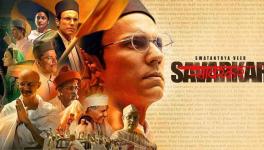Intimate Death of an Actor

Not many actors have generated the kind of personal sense of bereavement as Irrfan Khan’s recent untimely death did. The news had social media overflowing with expressions of an intense sense of personal loss. Grief over the loss of a great talent is understandable, but the sense of personal loss needs to be carefully thought about. This outpouring was not just about the demise of Irrfan the individual, but also about the slipping away of the kind of world a generation had imagined for itself.
Irrfan blended that world as a person and portrayed it through the characters he played on screen. Without this, such a deep sense of grief would not have been possible, as it was during the hey-day of South Indian stars such as NTR in Telugu movies and MGR in Tamil films.
Very quietly, in his own affable way, Irrfan upturned many of our staple social norms. His was a stupendous talent that by far could not be ignored not only in India but also in Hollywood. Yet he had to wait for 15 long years before he began to get his due. Yet he did not wear his struggle on his sleeve. He continued to be self-deprecating, self-contained and quiet. He did not assert how long it took to make a mark, notwithstanding the powerhouse of talent that he was.
Added to this, Irrfan had charted his own journey and never lost track of his vision—something that stardom can push any actor towards. He continued to dabble in the middle path of “entertaining with substance”. He represented a quiet resolve to entertain, but in his own way. It was therefore possible for him to chart a new path. He was assertive, but not in known ways: he resisted the mainstream yet created his own brand of mainstream.
In the way Irrfan carried himself, and in the sort of characters he portrayed, there was something that we all could deeply identify with and say, “I am Irrfan”. He stirred in us something that society had made us bury within ourselves. He was an unlikely hero who became an achiever against the odds, things that were not heroic but genuine. At least a part of his persona seemed to reflect what Irrfan himself was as a person. If one takes the effusion of grief on his demise seriously, it would seem that society privileges the value of understated achievement.
In a way, the struggle to achieve something mostly leaves behind ugly marks on a person—it can turn most people harsh, resentful, and bitter. Irrfan presented a silent hope to the contrary, and did not miss its aesthetics. In fact, his way of being also reflected in his craft. He was a non-committal actor, holding back more than what he expressed. His silences were more pronounced than his presence. They invited us to see rather than thrusting upon us what he wishes to communicate.
Liminality—occupying the boundaries or transitions of a process—has a great potential to transcend social barriers. It manages to fuse conflicting aspects of life. It leaves behind a greater residual aspect, which stays with us for a longer time. This is what was magical and soulful about his technique and persona. It requires a quiet confidence to occupy liminal spaces, which can quite possibly end up going unnoticed. This quietness was perhaps best depicted by Irrfan’s character in Shoojit Sircar’s Piku. His was not the main role, yet without him the film wouldn’t have been the success that it was.
Liminality allows us to escape being reduced to social identities. Even if we know deep within that this transcendence is temporary, yet it resonates with our deeper sense of who we aspire to be. It is therefore not insignificant that Irrfan’s loss is being felt more personally and emotionally than just the demise of an undisputed talent. This in itself is something spectacular—that he is being remembered not just for his craft but something more than it.
In times of aggressive self-promotion, loud claims and stepping on others toes, Irrfan’s method acting was surreal. The loss that many felt gives us hope that people will continue to value his way of being: silent, aesthetically fulfilling, and liminal in a way that made him affable. It cannot be missed, yet not overstated, that he came from a small town in Rajasthan and belonged to a minority community in polarising times. His origins and identity, if anything, added to the mysticism that was about him. He was quite fearless in his opinion, even about religion, yet very withdrawn. There was no rush, no hurry to prove himself. He left matters open ended and allowed the possibility of self-improvisation to instantiate something unseen. This has also filled his untimely death with pathos; leaving us with a deep sense of loss at what more would have been possible. The untimely closure feels unfair.
As in life, in his death Irrfan presented the existential dilemmas of life. The meaning of life is always in the making and can never arrive at a proper closure. In celebrating his life and craft, we would have to reconcile and come to terms with the abruptness of life. (A myth that will never be solved and therefore its meaning lies in remaining unfinished.) Even as we express grief at the loss, we cannot afford to miss this layered reality that society is expressing. It is more of a celebration than grief. Irrfan Khan and the performance of invisible social facets can only be celebrated as they can only bring hope of where, and who, we ought to be.
The author is associate professor, Centre for Political Studies, JNU. The views are personal.
Get the latest reports & analysis with people's perspective on Protests, movements & deep analytical videos, discussions of the current affairs in your Telegram app. Subscribe to NewsClick's Telegram channel & get Real-Time updates on stories, as they get published on our website.
























